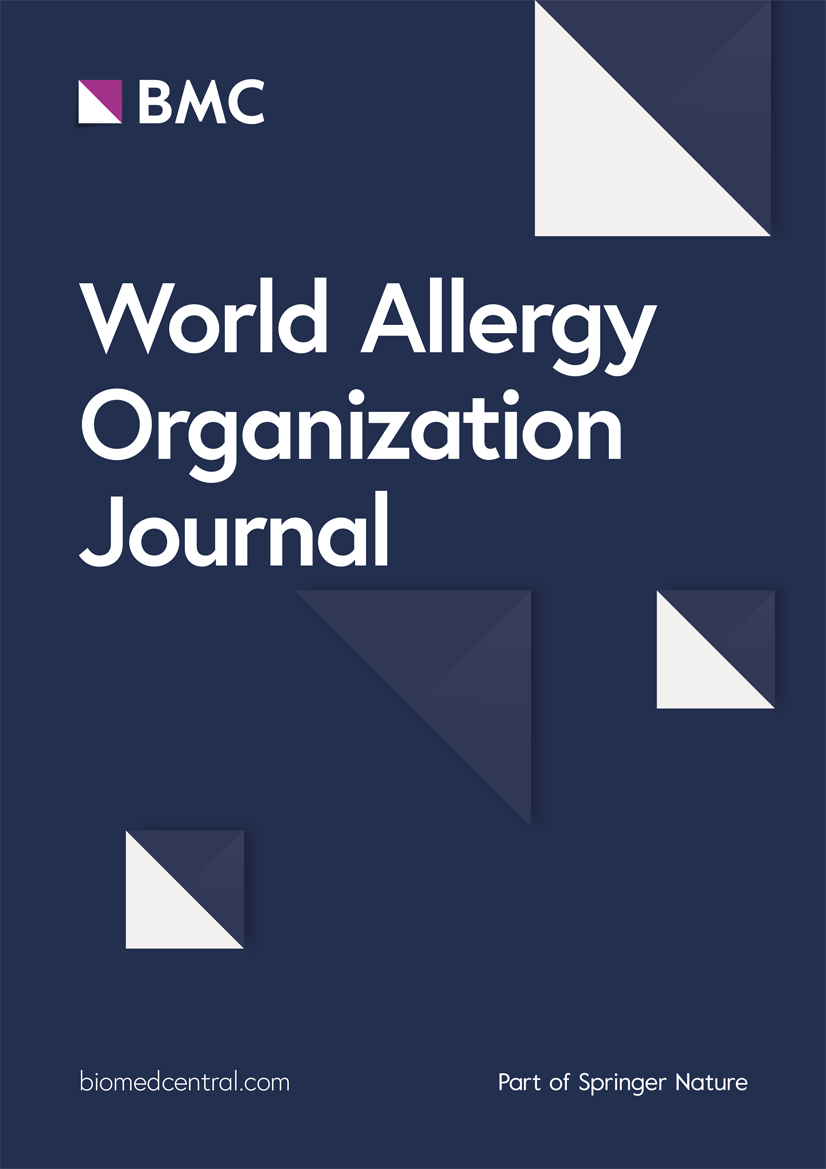Discontinuation of biologic therapy in severe asthma: Evidence and strategies for safe withdrawal: A scoping review
IF 4.3
2区 医学
Q2 ALLERGY
引用次数: 0
Abstract
Introduction
Severe asthma is characterized by poor disease control despite the use of high-dose inhaled corticosteroids and long-acting bronchodilators. Biologic therapies have revolutionized its management, allowing some patients to achieve remission. However, uncertainty remains regarding the optimal duration of treatment and the safest strategies for discontinuation. This study reviews the available evidence on the withdrawal of biologic therapy in patients with severe asthma in remission, evaluating their clinical outcomes.
Methods
A literature review was conducted in PubMed, EMBASE, Epistemonikos, and LILACS up to May 2024, using terms related to severe asthma and discontinuation of biologic therapies. Studies evaluating asthma control after dose reduction or withdrawal of biologic treatment were included, considering outcomes such as exacerbations, lung function, and inflammatory biomarkers.
Results
Of the 2494 studies identified, 23 articles were included after full-text review. Discontinuation of tezepelumab led to a gradual loss of clinical control in most patients, although baseline levels of inflammation were not reached. Regarding mepolizumab, 59% of patients experienced at least 1 significant exacerbation within the first year after withdrawal, suggesting the need for prolonged use. For omalizumab, results were heterogeneous: 67% of patients who continued treatment remained exacerbation-free, compared to 47.7 of those who discontinued it. Studies that implemented gradual tapering strategies showed higher success rates in discontinuation without loss of clinical control.
Conclusion
Evidence suggests that discontinuation of biologic therapy should be individualized, and a minimum treatment duration of 5 years may be appropriate before considering withdrawal. Optimal candidates include those with sustained clinical control, stable lung function, suppressed inflammatory biomarkers, and no need for oral corticosteroids. Gradual decreasing strategies may optimize treatment withdrawal while minimizing the risk of relapse.
严重哮喘生物治疗的停药:安全停药的证据和策略:一项范围综述
尽管使用了大剂量吸入皮质类固醇和长效支气管扩张剂,但严重哮喘的特点是疾病控制不佳。生物疗法已经彻底改变了其管理,使一些患者达到缓解。然而,关于最佳治疗持续时间和最安全的停药策略仍然存在不确定性。本研究回顾了严重哮喘缓解期患者停止生物治疗的现有证据,评估了他们的临床结果。方法对截至2024年5月的PubMed、EMBASE、Epistemonikos和LILACS进行文献综述,使用与严重哮喘和停止生物治疗相关的术语。纳入了评估减少剂量或停止生物治疗后哮喘控制的研究,考虑了诸如恶化、肺功能和炎症生物标志物等结果。结果在纳入的2494项研究中,23篇文章在全文审查后被纳入。停用tezepelumab导致大多数患者逐渐失去临床控制,尽管炎症未达到基线水平。关于mepolizumab, 59%的患者在停药后的第一年内至少经历了一次显著恶化,这表明需要长期使用。对于omalizumab,结果是不均匀的:67%继续治疗的患者仍然没有恶化,而停止治疗的患者为47.7%。实施逐渐减量策略的研究显示,在不失去临床控制的情况下,停药成功率更高。结论有证据表明,停止生物治疗应个体化,在考虑停药前至少治疗5年为宜。最佳候选者包括那些持续的临床控制,稳定的肺功能,抑制炎症生物标志物,不需要口服皮质类固醇。逐渐减少的策略可以优化治疗停药,同时最小化复发的风险。
本文章由计算机程序翻译,如有差异,请以英文原文为准。
求助全文
约1分钟内获得全文
求助全文
来源期刊

World Allergy Organization Journal
Immunology and Microbiology-Immunology
CiteScore
9.10
自引率
5.90%
发文量
91
审稿时长
9 weeks
期刊介绍:
The official pubication of the World Allergy Organization, the World Allergy Organization Journal (WAOjournal) publishes original mechanistic, translational, and clinical research on the topics of allergy, asthma, anaphylaxis, and clincial immunology, as well as reviews, guidelines, and position papers that contribute to the improvement of patient care. WAOjournal publishes research on the growth of allergy prevalence within the scope of single countries, country comparisons, and practical global issues and regulations, or threats to the allergy specialty. The Journal invites the submissions of all authors interested in publishing on current global problems in allergy, asthma, anaphylaxis, and immunology. Of particular interest are the immunological consequences of climate change and the subsequent systematic transformations in food habits and their consequences for the allergy/immunology discipline.
 求助内容:
求助内容: 应助结果提醒方式:
应助结果提醒方式:


